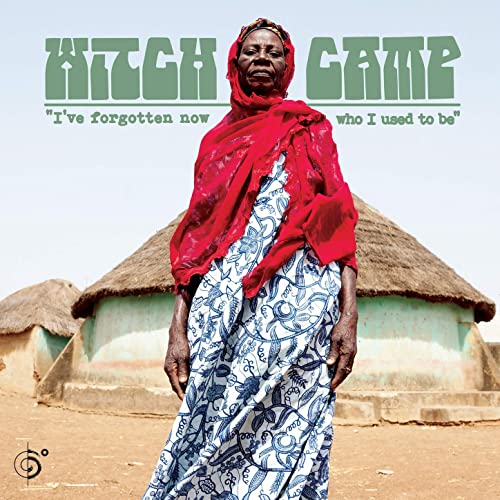
Witch Camp
I’ve Forgotten Now Who I Used To Be
Six Degrees Records
There are villages in Ghana called Witch Camps. These villages are places where women accused of witchcraft can live safely, in their own communities away from persecution. Some of the women are accused because they have mental health issues or physical ailments that make them different. Other women have been labeled witches after their husbands’ died so their land and property could be stolen. Then of course, sometimes the women are just unlucky. When bad things happen, humans look for someone to blame. Some people in America blamed the Chinese for Covid-19. In parts of West African, people might blame the witch. Marilena Umuhoza Delli, (the Italian-Rwandan filmmaker, author, and photographer who made this project in collaboration with her producer, author, husband, Ian Brennan) points out, “More commonly, it is a justification for pre-existing hate and prejudice. A member of my own family was driven out of her village in Malawi as a child after she was accused of being a witch due to having a white father — a fate that could have been my own if our places of birth were simply swapped.”
The songs on I’ve Forgotten Now Who I Used To Be are field recordings. Jan Brennan and Marilena Umuhoza Delli, took their recording equipment to the Witch Camps. Most of the songs were improvised by the women using whatever was at hand, a teapot, tin cans, and even tree limbs. With the exception of one person who had some experience singing, everyone else is singing lead for the first time. The songs are sung in regional dialect or the lesser-spoken languages of Mampruli and Dagbani, the lyrics are untranslated and indecipherable even to many locals as they are not in the dominant languages of English or Akan.
I’ve Forgotten Now Who I Used To Be is a continuation of the ethno musicological legacy of Alan Lomax (founder of Folkways records). The performances are all about capturing the moment. They are raw, emotional and unsweetened. The songs are sung in languages most of us don’t understand, but the emotion in these voices is universal. We are given an idea of what the women are singing about though because they titles are given in English. You don’t need to understand Dagbani, to know that a song called “I Trusted My Family, They Betrayed Me,” is not a good times jam. Other song titles include, “Hatred Drove Me From My Home,” “I Have Lost All That I Love,” “Left to Live Like An Animal,” and “Everywhere I Turn, There is Pain.”
The Witch Camps of Ghana expose a very unpleasant part of human nature. Humans, it doesn’t matter if they’re from Mali or Manhattan, have a tendency to look for someone to blame when things go wrong. Who gets blamed? The people who don’t look the same as us? The people who don’t talk the same as us? The people who don’t pray like us? As residents of the United States of America, we might be tempted to say, oh those poor, superstitious, backward Africans. Can you believe they blame witches for bad weather? Can the people who entertain the idea of a “Chinese” virus and tolerate what happened to George Floyd really believe they are morally or intellectually superior?












